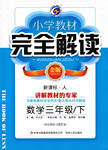题目内容
阅读下面材料,在空白处填入适当的内容(1个单词)或括号内单词的正确形式。
Mr. and Mrs. Jackson worked in the same company. The man was skillful and earned twice as much, if not more than, 1. his wife. But he had to give all his money to his wife, 2. bought the food, clothes and drinks for him. He was angry with her 3. couldn’t say anything. All the men in the workplace were afraid of their wives and they felt sorry for each other.
It was March 8th and all the women had a day off. The men were free to say whatever they wanted. They had endless 4. (complain) about their wives. And they thought 5. unfair that women had their own festival but they didn’t. The more they said, the 6. (angry) they became. They decided to write a letter to the UN and advised them 7. (cancel) “Women’s Day”. They asked Mr. Jackson to do it, too. The man agreed and began to write it.
When Mr. Jackson finished it, his wife came in. Her key 8. (leave) in the workplace and she came for it. She made him hand the letter to her. 9. (read) it, the woman said with a smile, “How can you post it to the UN 10. I don’t supply you with the money for buying a stamp?”
 小学教材完全解读系列答案
小学教材完全解读系列答案
